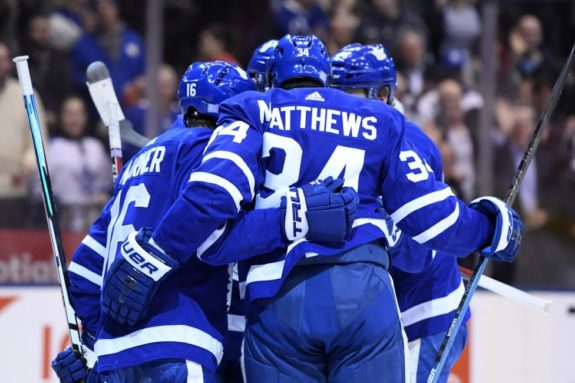After months of speculation, the Toronto Maple Leafs have finally made a decision when it comes to forward William Nylander. A talented scorer who’d posted back-to-back 61-point seasons for the Leafs, he became a restricted free agent at the end of the 2017-18 season and the first of the “big-three” young stars in Toronto who were going to need new contracts.
https://twitter.com/friedgehnic/status/1068987803701112832?s=21
Narrowly avoiding the deadline to make him available for this season, on Saturday, the team signed him to a six-year, $6.9 million contract extension.
The Nylander Dilemma
For both the Maple Leafs and Nylander, this negotiation wasn’t going to be easy. Nylander hadn’t produced enough offense consistency to be valued at more than $6.5 -$7 million on a long-term deal but he also knew that should he improve, toward the end of any new lengthy contract, those numbers might be considered a bargain in the current landscape of NHL contracts. Nylander also understood, as the first to sign, he could be the only RFA on the Maple Leafs roster to take a deal; players like Mitch Marner and Auston Matthews were coming up next and they may not choose to be so giving.

Wanting to make sure he got fair value over the duration of the contract, Nylander was prepared to sit out the season and did so for the first 26 games of the Maple Leafs’ 2018-19 campaign. Meanwhile, the Maple Leafs couldn’t afford to pay him a dollar more than he was worth because doing so might open them up to huge salary cap implications for other stars who many considered more valuable.
To complicate matters, during the summer, the Maple Leafs signed John Tavares to a huge-money contract at $11 million per season.
Related: William Nylander’s Holdout: Good for Him, Bad for Hockey
The Nylander Negotiations
Leading up to the move on Saturday, there was speculation the Maple Leafs and Nylander might have been inching closer to a deal as contract terms suggested $6.9 million per season on a six-year deal would get Nylander back in a Maple Leafs jersey this season. It was then confirmed by Chris Johnston of Sportsnet that a six-year deal was possible, but throughout the process of negotiations, the numbers had gone as high as Nylander wanting $8-$9 million per season on an eight-year deal, while others suggested the Maple Leafs believed he might be worth less than $6 million on a long-term deal. At one point, rumors of a bridge contract were out there as a way to simply get a deal done.

As the December 1, 2018 deadline grew closer and Nylander was on the verge of reaching ineligible status to play in the NHL this season, speculation was rampant that a trade was coming. While the last option was to trade Nylander, the Maple Leafs had made it known they would listen to offers and the buzz was the organization had been talking to the Carolina Hurricanes and Philadelphia Flyers among others.
All the while, Nylander stayed away from the media and seemed ready to sit out, play elsewhere and not open himself up to being, what he considered, underpaid for the offense he could provide in a year where the Maple Leafs were among the favorites to win a Stanley Cup.
The organization consistently said their main plan was to sign Nylander and head coach Mike Babcock stayed positive saying, “In my heart and in my mind I know he’s gonna be on the team. That’s how I gotta think.”
Related: NHL Rumors: Maple Leafs’ Nylander, Matthews, Marner All Connected
What Happens in Toronto Now?
With Nylander now signed, the Maple Leafs just got that much more dangerous. This season, their concerns are few. But, when the season comes to an end and the Leafs walk away from it either Stanley Cup Champions or close contenders, they have a ton of work to do.

Marner, Matthews, Gardiner, and others will need contracts moving forward and the deal done with Nylander today sets the tone for those negotiations.
It’s also possible the contract just signed and the drama that it took to get to this point means Nylander’s stay with the Maple Leafs will be a short one. Sportsnet’s Elliotte Friedman recently wondered whether this whole process might have soured any future the two sides might have of working together and speculated the organization will try to alleviate the stress of his new salary by moving him. Friedman said, “One way or the other, I think this is over. I would be surprised if he plays for Toronto next season.”